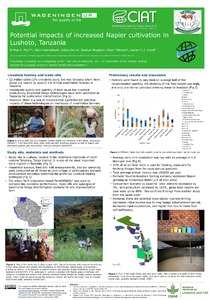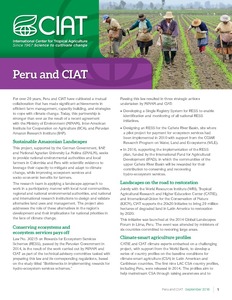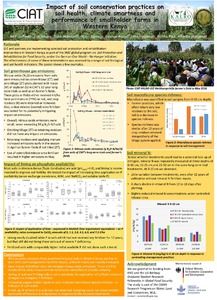Mission
To reduce hunger and poverty, and improve human nutrition in the tropics through research aimed at increasing the eco-efficiency of agriculture.
People
CIAT’s staff includes about 200 scientists. Supported by a wide array of donors, the Center collaborates with hundreds of partners to conduct high-quality research and translate the results into development impact. A Board of Trustees provides oversight of CIAT’s research and financial management.
Values
- Shared organizational ethic
- We respect each other, our partners, and the people who benefit from our work. We act with honesty, integrity, transparency, and environmental responsibility in all of our joint endeavors.
- Learning through partnerships
- We work efficiently and pragmatically together and with partners. Considering our diversity to be a key asset, we adapt readily to change and strive to improve our performance through continuous learning.
- Innovation for impact
- We develop innovative solutions to important challenges in tropical agriculture, resulting in major benefits for the people who support, participate in, and profit from our work.
Members:
Resources
Displaying 206 - 210 of 958Spatial Targeting of Agricultural Intensification Investments: The use of spatial data for targeting SI investments
Potential impacts of increased Napier cultivation in Lushoto, Tanzania
Impact of soil conservation practices on soil health, climate smartness and performance of smallholder farms in Western Kenya
Climate-smart agriculture in Moldova
The climate-smart agriculture (CSA) concept reflects
an ambition to improve the integration of agriculture
development and climate responsiveness. It aims to
achieve food security and broader development goals
under a changing climate and increasing food demand.
CSA initiatives sustainably increase productivity, enhance
resilience, and reduce/remove greenhouse gases (GHGs),
and require planning to address tradeoffs and synergies
between these three pillars: productivity, adaptation, and






